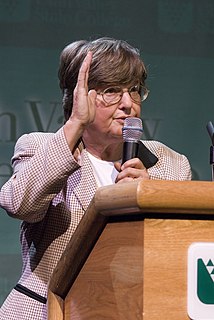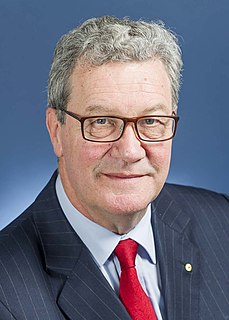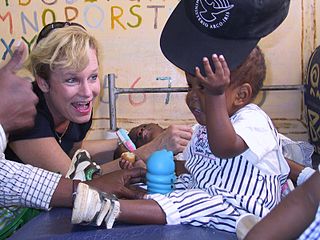A Quote by Pope John Paul II
The dignity of the human person is a transcendent value, always recognized as such by those who sincerely search for the truth. Indeed, the whole of human history should be interpreted in the light of this certainty. Every person, created in the image and likeness of God (cf. Gn 1:26 28), is therefore radically oriented towards the Creator, and is constantly in relationship with those possessed of the same dignity. To promote the good of the individual is thus to serve the common good, which is that point where rights and duties converge and reinforce one another.
Quote Topics
Always
Another
Certainty
Common
Common Good
Constantly
Converge
Created
Creator
Dignity
Duties
Every
God
Good
History
Human
Human History
Image
Indeed
Individual
Interpreted
Light
Likeness
Oriented
Person
Point
Possessed
Promote
Radically
Recognized
Reinforce
Relationship
Rights
Rights And Duties
Same
Search
Serve
Should
Sincerely
Therefore
Those
Thus
Towards
Transcendent
Truth
Value
Which
Whole
Related Quotes
All human life-from the moment of conception and through all subsequent stages-is sacred, because human life is created in the image and likeness of God. Nothing surpasses the greatness or dignity of a human person...If a person's right to life is violated at the moment in which he is first conceived in his mother's womb, an indirect blow is struck also at the whole moral order.
But the dignity of human life is unbreakably linked to the existence of the personal-infinite God. It is because there is a personal-infinite God who has made men and women in His own image that they have a unique dignity of life as human beings. Human life then is filled with dignity, and the state and humanistically oriented law have no right and no authority to take human life arbitrarily in the way it is being taken.
In the Universal Declaration of Human Rights (December 1948) in most solemn form, the dignity of a person is acknowledged to all human beings; and as a consequence there is proclaimed, as a fundamental right, the right of free movement in search for truth and in the attainment of moral good and of justice, and also the right to a dignified life.
In a revolutionary age talk of equality may well have represented a passion to provide full human dignity to those who had previously been denied it by systems of political and economic domination; but in the present age it softens the spiritual requirements that are an essential ingredient in human dignity. Thus the slogans of equality serve not so much to elevate individuals to the dignity of being human as to free them from the responsibility of rising to this vocation.
Laws which authorize and promote abortion and euthanasia are therefore radically opposed not only to the good of the individual but also to the common good; as such they are completely lacking in authentic juridical validity. Disregard for the right to life, precisely because it leads to the killing of the person whom society exists to serve, is what most directly conflicts with the possibility of achieving the common good. Consequently, a civil law authorizing abortion or euthanasia ceases by that very fact to be a true, morally binding civil law.
For us democracy is a question of human dignity. And human dignity is political freedom, the right to freely express opinion and the right to be allowed to criticise and form opinions. Human dignity is the right to health, work, education and social welfare. Human dignity is the right and the practical possibility to shape the future with others. These rights, the rights of democracy, are not reserved for a select group within society, they are the rights of all the people.
If every person has the right to defend - even by force - his person, his liberty, and his property, then it follows that a group of men have the right to organize and support a common force to protect these rights constantly. Thus, since an individual cannot lawfully use force against the person, liberty, or property of another individual, then the common force - for the same reason - cannot lawfully be used to destroy the person, liberty, or property of individuals or groups.
The first priority will consist in restoring a sense of the acceptance of life as a gift from God. According to both Sacred Scripture and the wisest traditions of your continent, the arrival of a child is always a gift, a blessing from God. Today it is high time to place greater emphasis on this: every human being, every tiny human person, however weak, is created 'in the image and likeness of God' (Gen 1:27)
The earth, in its natural, uncultivated state was, and ever would have continued to be, the common property of the human race." As the land gets cultivated, "it is the value of the improvement, only, and not the earth itself, that is in individual property. Every proprietor, therefore, of cultivated lands, owes to the community a ground-rent..to every person, rich or poor...because it is in lieu of the natural inheritance, which, as a right, belongs to every man, over and above the property he may have created, or inherited from those who did








































